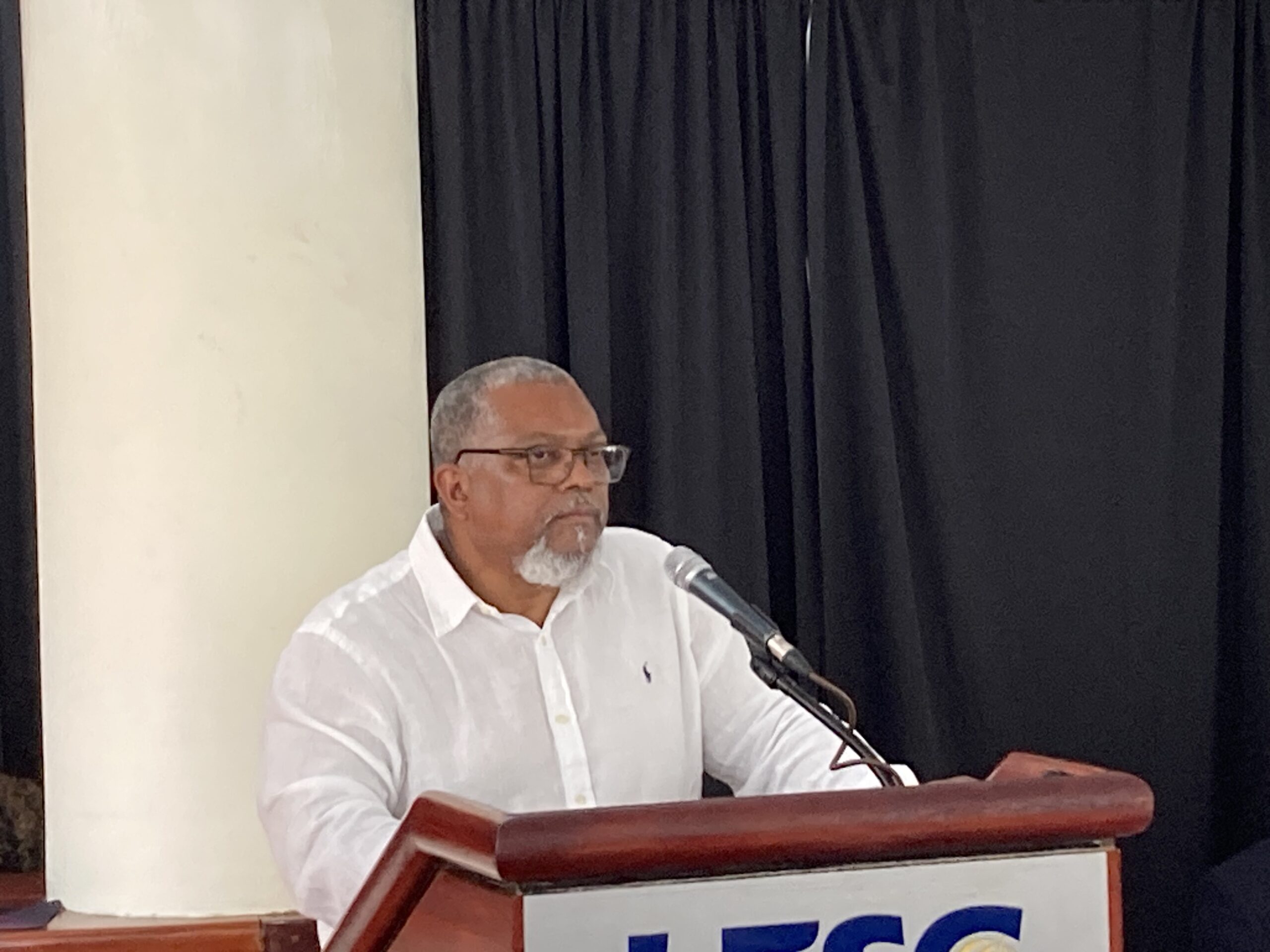Agriculture Minister Indar Weir Calls Out BICO Over Withheld Data Amid Barbados Chicken Shortage Concerns

October 27, 2024
Agriculture Minister Indar Weir criticizes local company BICO for withholding crucial data on stored poultry, hindering efforts to prevent a potential chicken shortage in Barbados during the upcoming holiday season.
Agriculture Minister Indar Weir has called out local company BICO for withholding critical data that he says could help prevent a looming chicken shortage in Barbados.
With the holiday season approaching and demand expected to surge, Weir explained that his ministry had reached out to BICO, asking for specific information on stored poultry that could support local farmers and stabilise supply. However, despite his written request, BICO has yet to respond.
“I picked up the phone and contacted BICO, asking them to share with me, as Minister of Agriculture in Barbados, what information they had on farmers — small farmers — for chicken in storage,” Weir stated, emphasising his intent to provide immediate support.
“I didn’t want the information for any other reason than to assist those farmers,” he added.
Speaking during the Barbados Agricultural Society’s (BAS) Annual General Meeting held at the Lloyd Erskine Sandiford Centre, he noted, “Needless to say, to this day, I have not received any information from BICO. When I spoke to the CEO, he asked me to reduce it to writing, which I did on the ministry’s letterhead. Yet, I still have not received any information.”
The minister suggested BICO’s lack of co-operation represents a troubling roadblock to government efforts aimed at supporting local farmers and strengthening the island’s poultry supply. “Were there farmers with chicken in storage that they couldn’t get sold? I wanted the information to see what leverage I could use with supermarkets in Barbados to help them get it sold,” he told farmers. “But by withholding that information, BICO did a disservice not to me but to the farmers who were looking for support and assistance.”
Weir went on to argue that open, co-operative communication across the sector is essential, especially as Barbados works toward food security and self-sufficiency.
“If we can’t get the information needed to intervene and assist these farmers in getting their produce to market, then we’re only weakening our position as an agricultural sector,” Weir stated. “I am not here to call out any person or entity, but it’s essential for us all to play a part if we’re to avoid these types of shortages and supply chain issues in the future.”
Amid the ongoing challenges, the agriculture minister reaffirmed the government’s commitment to ensuring adequate poultry supply for Barbadians, including resorting to imports if necessary. “I will not stand here and lie to you and make you believe we will not import chicken,” he clarified. “Because if I have to make sure Barbadians can eat poultry, I have to do what I have to do.”
However, he stressed that this should not undermine efforts to bolster local production. “Local producers are at the heart of our food security,” Weir stressed. “The goal is to increase local production, but we need the data and the co-operation to ensure we’re moving in the right direction.”
Barbados TODAY is reaching out to BICO for comment.
Meanwhile, the BAS’s Chief Executive Officer, James Paul, voiced similar concerns, stressing that local farmers are willing and prepared to meet the island’s poultry demands but need equitable access to market data and support to compete effectively.
“Our poultry farmers are stepping up to the plate, but we need all players to co-operate,” he stated. “The farmers need fair access to the market and assurance that they won’t be outmanoeuvred by imports if they ramp up production to meet local needs.”
Weir has urged stakeholders, particularly larger entities like BICO, to see themselves as partners in a broader national effort. “It’s not just about chicken in storage; it’s about building an efficient and resilient agricultural sector in Barbados that can respond to crises and grow sustainably,” he said. “If we are to transition into a 21st-century agriculture sector, we need a shared commitment to transparency, co-operation, and data-driven solutions. We can’t get there if we’re pulling in different directions.” (RG)


